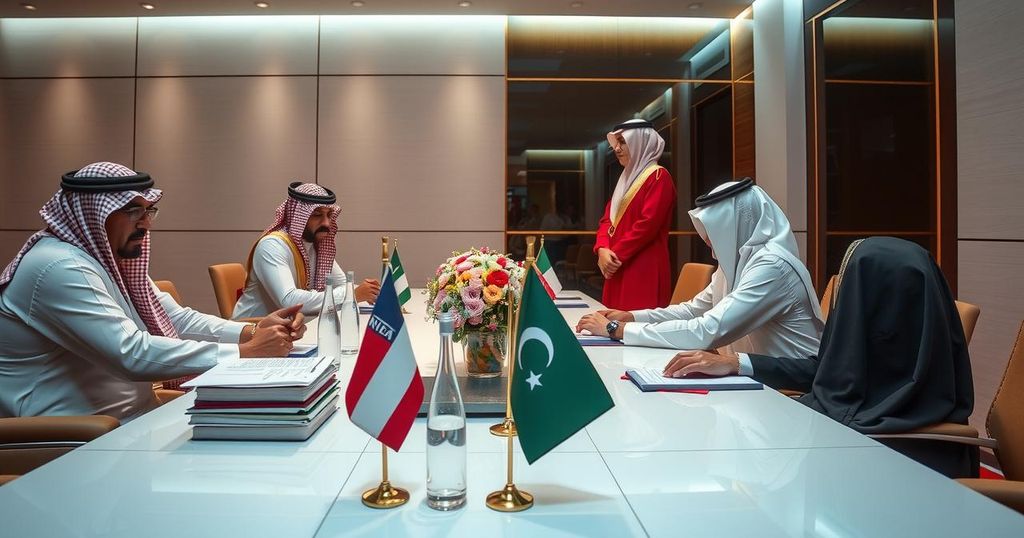Syria’s Foreign Minister, Asaad al-Shaibani, is scheduled to visit Qatar, the UAE, and Jordan to seek investment and support for rebuilding the war-torn country. This follows his recent trip to Saudi Arabia, marking a new diplomatic approach under the current government. Al-Shaibani’s efforts aim to establish partnerships that contribute to economic recovery and stability.
Syria’s Foreign Minister, Asaad al-Shaibani, announced plans for official visits to Qatar, the United Arab Emirates, and Jordan as part of the new government’s focus on securing investment from affluent Gulf nations. This itinerary follows Shaibani’s inaugural trip to Saudi Arabia, aimed at facilitating the rehabilitation of Syria’s war-torn economy. In his statement, he emphasized the importance of these visits for fostering stability and establishing fruitful partnerships in the region. The recent shift in Syria’s leadership underscores a significant diplomatic pivot towards improved relations with neighbors.
The context of these visits lies in Syria’s prolonged conflict, which has devastated its infrastructure and economy over the past decade. With the recent changes in leadership following the ousting of former President Bashar al-Assad, the new government led by Ahmed al-Sharaa seeks to engage with Gulf nations. These countries possess the financial resources necessary for rebuilding efforts, and their involvement is regarded as crucial for Syria’s recovery. As the diplomatic landscape evolves, these meetings reflect an ambition to forge closer ties and foster cooperation.
In conclusion, the planned visits by Syria’s Foreign Minister to key Gulf nations reflect a strategic initiative by the new government to restore economic stability and secure investments that are vital for reconstruction. This diplomatic outreach signifies a notable shift towards improved regional relations after years of isolation, and it highlights the potential for increased collaboration with neighboring countries. The ongoing engagement with Gulf states may play a pivotal role in shaping Syria’s post-conflict recovery trajectory.
Original Source: www.barrons.com






